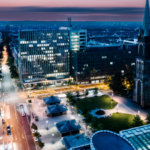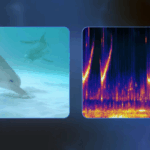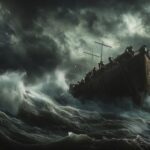My worklife past is riddled with old computers, old hard drives removed from old computers and other bits of technology acquired over the years. Today, I am writing this blog on a seven-year old desktop computer that will not let me download the latest Windows operating system. An old Chromebook sits discarded on a shelf in my office because it no longer can accept updates. That’s why I recently bought a new one for travel.
My work using computers dates back to 1979 when I first started tinkering with kits. I have had Commodores, Macs, Toshibas, IBMs, Tandy, Epson, and Dell equipment up the ying yang. All have eventually succumbed to the industry’s planned obsolescence paradigm as new operating systems and faster processors have gotten introduced. I always thought it was such a waste to discard perfectly serviceable machines just because the latest operating systems wouldn’t run on them.
So when I read about Alphabet’s Google taking on the cause of rehabilitating old hardware I was intrigued. It appears that the people in Google are out to make everything old new again. They are doing this through the creation of a new version of their Chrome operating system which they are calling Flex. I gather the name says it all. Flex is flexible and can operate on hundreds of legacy computer systems that normally would go on a shelf or into a landfill.
One key characteristic of any release of Chrome is that the operating system is very Cloud oriented. Even as I write this posting on a Windows desktop I realize I’m hardly using the computer’s hard disk memory because my blog is written using a cloud-based tool called WordPress. And because I am a Gmail user I have access to Google apps like Docs for doing word processing, spreadsheets, presentations, and more. My Android smartphone camera images automatically upload to the Cloud image library which allows me to access them for editing while on my desktop. All that functionality today comes from using my Chrome browser and Gmail on a Windows-based computer system.
Now Google has created Flex which is Chrome light to run on older computers with retired operating systems. Flex is Chrome cloud-centric. It uses the same web apps, Gmail, Google Docs, and lots of third-party software available from the Google Playstore. And that means a new lease on life for your old computer.
Think of where Flex can make a difference. For budget-constrained schools and school boards, it means old equipment can still be used for years longer. It means the same for small businesses with old computer systems or at-home users with limited finances. Flex means old laptops and desktops now can deliver a whole bunch of new value.
Officially known as ChromeOS Flex, it can be downloaded. You can copy the files to flash drives and plug them into USB ports. For systems without USB ports, Flex can be copied to CDs to install.
Google has been on a buying spree grabbing up legacy computers through eBay and online actions to develop a comprehensive interoperability list of computer models on which it can operate. So far Google has identified more than 400 that can use it.
Testing and certification are ongoing. Google posts an up-to-date list of manufacturers and models online. It reports on functionality, what works and what doesn’t. Testing includes audio and display inputs and outputs, webcams, network connectivity, keyboards, touchpads, USB ports, and other essential system components. Not all function keys work on some models, and sometimes touchscreens don’t, but for the most part, Google’s Flex is reviving equipment that would have been destined for the dustbin. And like so many products Google develops, Flex is free to individual customers and priced for organizations under enterprise licensing.
Is the idea of Flex new? Linux users will tell you no. Linux is an open-source operating system that has been used similarly to revive old hardware. Linux provides some of the same functionality as Flex because it can access the Internet and cloud-based applications. The main difference is Linux is supported by a user community while Flex is supported by Alphabet’s Google.
Both these operating systems mean new life for old machines. Both challenge the technology industry’s planned obsolescence paradigm. Both are environmentally important and give budget-minded consumers an alternative to buying the latest systems with nice-to-have but not essential bells and whistles.










[…] Save You Money – Recently Alphabet, Google’s parent company, announced the release of Chrome Flex, an operating system to extend the life of old laptop and desktop computers. Old electronics still […]